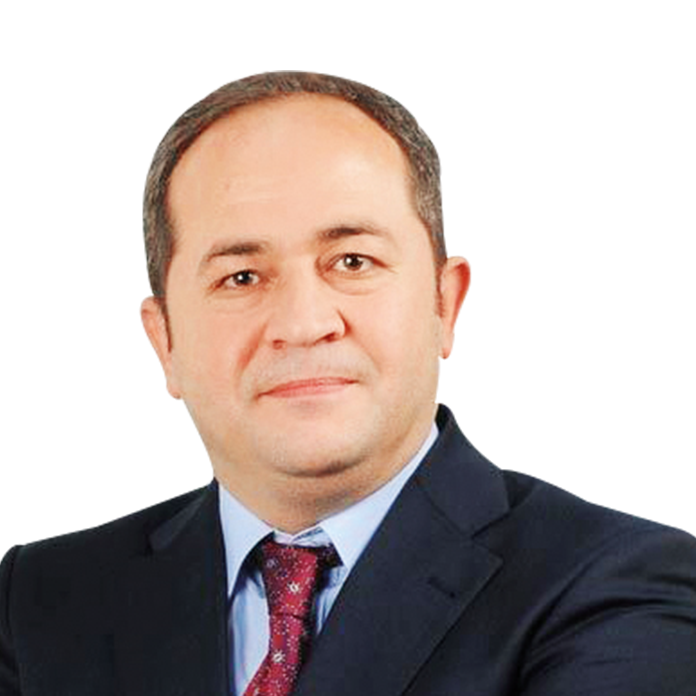From 2010 onward, Turkey’s political equation has been comprised of the power struggle being experienced in regard to “the building of New Turkey.” Actually, the 2010 referendum had created an optimistic outlook that tutelage had come to an end and a democratic political system would be built.
Deniz Baykal, who had stood shoulder-to-shoulder with tutelage and relentlessly resisted any attempt at democratization, was forced to leave office in 2010; the state, as part of its solution to the Kurdish problem and its fight against terrorism, abandoned its security paradigm and implemented the democratic initiative and the Oslo process, thereby raising hopes of resolving a century-long problem of which 30 years were filled with bloodshed; and society’s demand for reform had forced all political parties to support the drafting of a new constitution.
This climate of optimism, however, did not last long. The change of leadership in the CHP (Republican People’s Party) did not result in a political line that could meet society’s request for change and its demand for democracy; the PKK, with the attack it launched in 2011 followed by its espousing of a “revolutionary people’s war,” led the country into spiraling violence; and society’s request for a new constitution was left unanswered.
The fundamental dynamic behind the quick dissipation of the climate that was generated in the wake of the 2010 referendum was that the segments which supported the AK Parti (Justice and Development Party) during its fight against tutelage, did not deem the AK Parti to be the right “actor” in the process of building the new Turkey.
When some quarters, which had supported the AK Parti during its fight against tutelage, started opposing the AK Parti after 2010, the battle ground was diversified. Although the front opposing the AK Parti widened between 2010 and 2013, “opposition to the AK Parti” had not yet become the sole founding dynamic of politics, and hadn’t yet taken on the characteristic of defining the identity of opposition segments. As a result, the political battle waged over the coordinates of New Turkey, until 2013, to a large extent, possessed a national and patchwork attribute.
In 2013, the local opposition, which had continued to strengthen after the Sept. 12, 2010 referendum and which was opposed to the AK Parti and the vision of “New Turkey” that represented the AK Parti, found strong global support. It was the Arab Spring that brought global actors into the equation.
While the AK Parti continued to lend the utmost support to the dynamic of change that was being witnessed in the Middle East and North Africa, the global actors opted to drown that dynamic of change after a short wait. The differences in outlook that was crystallized as a result of policies on Egypt and Syria, paved the way for the “Islamist” propaganda directed against Tayyip Erdoğan and the AK Parti – and which was surreptitiously being spread via Israel ever since the Davos summit and the Mavi Marmara crisis – to become more widespread.
The differences in outlook between the AK Parti leadership and global actors in regard to the democratic transformation taking place as a result of the Arab Spring paved the way for the local opposition to find unexpected global support. Erdoğan and the AK Parti became the targets of many acts of political engineering as a result of the cooperation that ensued between global circles that were set on drowning the Arab Spring, and national actors who were intent on torpedoing the AK Parti’s mission toward building a new Turkey. Hence the battle, which until 2013 had the attributes of being national and patchwork, became engulfed in a characteristic of being global and of being a front since 2013.
Clear examples of this are the acts of global engineering and the engineering of fronts that were revealed during the Gezi actions and the Dec. 17 and Dec. 25, 2013 operations, which were aimed at making the AK Parti change political direction by ending Erdoğan’s influence on the AK Parti.
The political arena was almost completely destroyed as their unease and concerns about the AK Parti were transformed into a showdown to drown the AK Parti. The power struggle that disregarded the framework of political legitimacy reduced all of politics to an act of engineering. Political parties, which by concentrating all their efforts on opposing the AK Parti instead of displaying a political performance based on alternative political visions, started to almost resemble political groups linked to organizations in their entirety.
The AK Parti, by relying on politics and society, ensured that all these operations ended in failure. Just like it didn’t make any concessions on its claims, it didn’t revise its targets either. Erdoğan was elected to the presidency and Ahmet Davutoğlu to the chairmanship of the AK Parti. Public opinion polls indicate that the AK Parti is well placed to garner the predicted support during the June elections as well.
If the opposition realizes that its engineering won’t place it in a better position in politics and directs its attention toward the development of a real political vision focused on societal problems, then 2015 will mark the start of a pioneering period where its expends its political energy on the process of building a new Turkey.




















